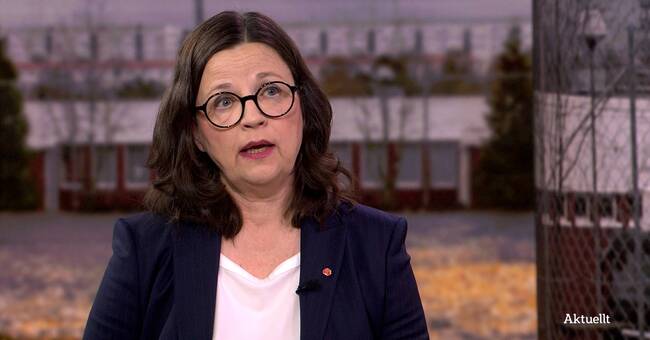The tours around Römosseskolan have been many.
The three independent schools in Gothenburg, which all have a Muslim profile, have for several years been criticized for various shortcomings, such as gender-segregated teaching and prayer times that are not perceived as voluntary.
Nevertheless, it was not until it was discovered that the school's former principal was suspected of embezzling the school's money that the Swedish Schools Inspectorate decided to close it.
Tomorrow, Friday, the three primary schools would have closed according to the Swedish Schools Inspectorate's decision.
But yesterday, a decision was made by the Court of Appeal that the schools may continue to remain open pending the Administrative Court's ruling.
Minister of Education Anna Ekström (S) comments in SVT's Aktuellt why the school has not been closed despite recurring shortcomings.
- I do not think it should be so.
That is why the government has put a proposal on the Riksdag's table which means that the Swedish Schools Inspectorate will be able to close schools that have major and recurring shortcomings more easily and more quickly.
"Ignorant criticism"
Kristina Axén Ohlin, education policy spokesperson for the Moderates, believes that the government could have acted with the current legislation through a regulatory letter.
But Anna Ekström rejects that argument.
- It sounds like an ignorant criticism.
There is no possibility to go further than what the legislation allows via a regulation letter.
"It was too easy to start school"
She points out that the legislation that made it possible for Römosseskolan and other schools to be able to open and conduct their activities is from 2011 when the Alliance had government power.
If you thought the previous law was flawed, why did you not change it in seven years?
- The government began by changing and tightening the existing rules on ownership and management review.
My assessment is that it was necessary.
It was too easy to start a school without having clean flour in the bag.
It was implemented in 2019. The government has now submitted the next proposal for tightening the regulations.

